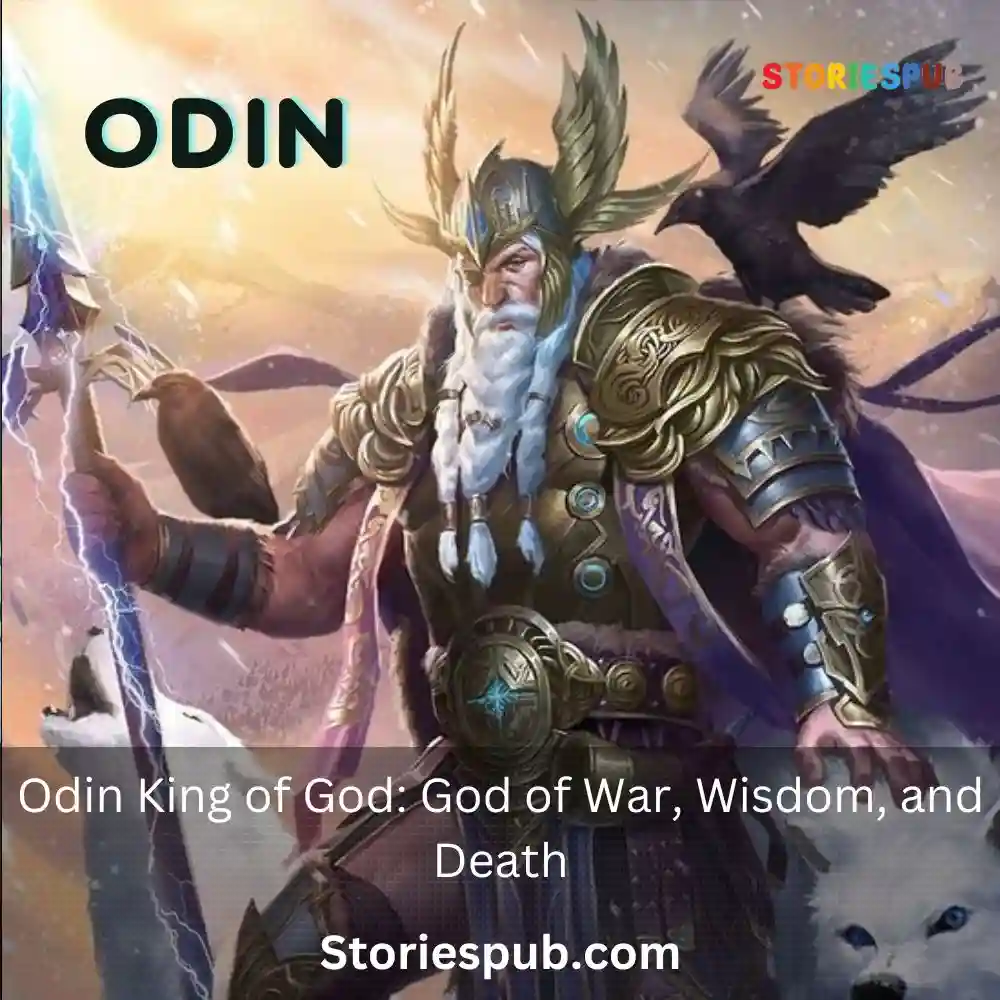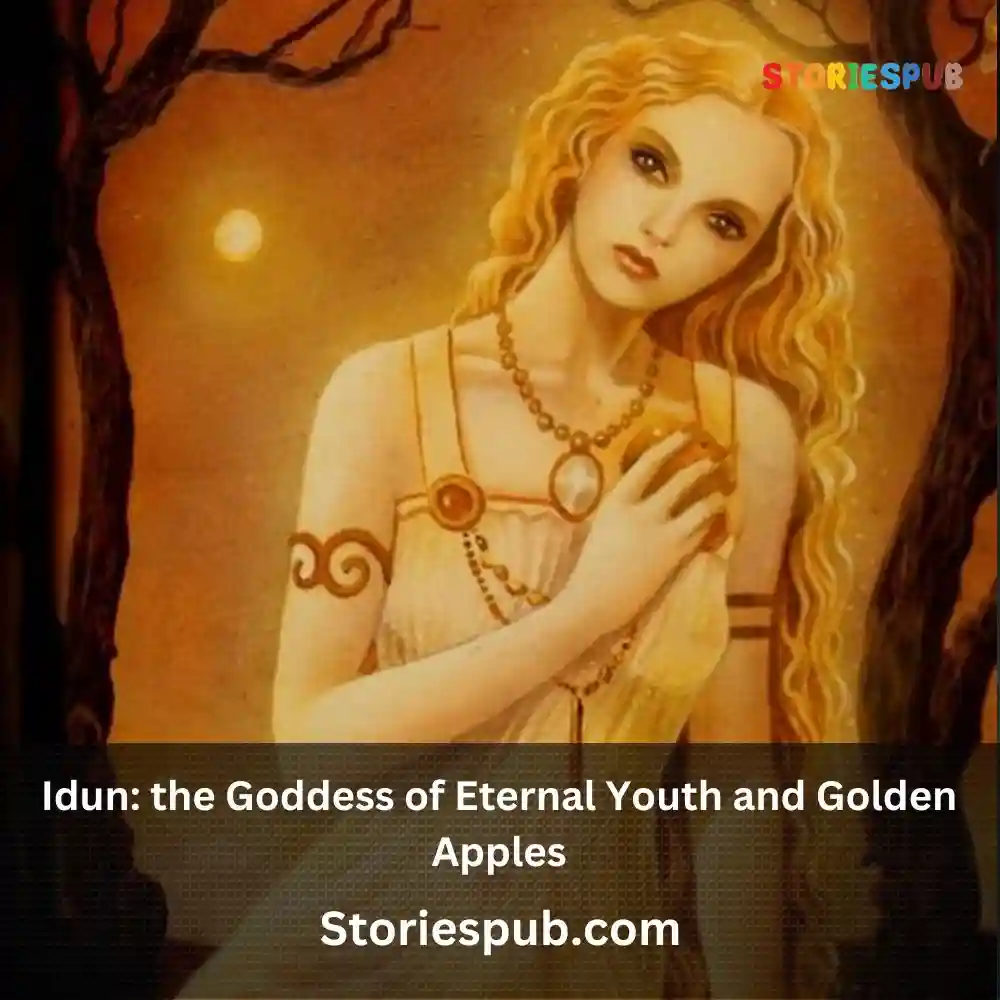Summarize this Article with:
Wepwawet: Path Opener of Ancient Egypt

Ancient Egyptian mythology is a rich tapestry of gods and goddesses, each with their own unique stories, symbols, and significance. Religion played a central role in their culture, shaping everything from daily life to the afterlife. The gods were believed to control the natural world and were invoked for protection, guidance, and blessings.
While many of these deities are well-known today – such as Osiris, Horus, or Isis – there are others that have been largely forgotten by time. One such god is Wepwawet.
The Importance of Gods in Ancient Egyptian Culture
The ancient Egyptians were deeply religious people who worshipped a vast pantheon of gods and goddesses. These deities were believed to be responsible for all aspects of life – from birth to death and beyond. In order to appease these powerful beings and secure their favor, the Egyptians built elaborate temples and shrines dedicated to them.
They performed complex rituals that often included offerings of food, drink or flowers. The priests acted as intermediaries between the people and the gods.
The pharaohs themselves were seen as divine beings with close ties to certain gods or goddesses. They would build huge tombs filled with offerings designed to ensure safe passage into the afterlife where they would join their patron deity in eternal bliss.
Introducing Wepwawet: The Guide for the Dead
One lesser-known god among this vast pantheon is Wepwawet. He was an ancient Egyptian deity who was often depicted as a wolf or jackal-headed man wielding a staff or scepter. Originally from Asyut in Upper Egypt; he was closely associated with the city and was often referred to as “Lord of Asyut.” He was also known as “Opener of the Ways,” a reference to his role in helping to guide the deceased through the afterlife.
Despite being largely overlooked in modern times, Wepwawet played an important role in ancient Egyptian mythology and religious practices. His stories provide insight into the beliefs and values of this rich culture and deserve to be remembered.
The Fascinating History of Wepwawet
Wepwawet’s history can be traced back to at least 3000 BC, when he was worshipped as a local god in Asyut. Over time, he gained prominence throughout Egypt and became associated with pharaonic power and the afterlife.
In the Book of Coming Forth by Day (commonly known as the Book of the Dead), Wepwawet is described as a powerful protector who opens up safe passages for the souls of deceased pharaohs. He was also believed to guard royal tombs from intruders.
As a guide for the dead, he played an important role in funerary rituals. Mourners would call upon him to open up paths through which their loved ones could safely travel into eternity.
His image could often be found on sarcophagi or tomb walls. In addition to these roles, Wepwawet had other duties too.
He was sometimes called upon by warriors before battle due to his association with strength and power. He also had ties with hunting, considered one of his more primal aspects due his animal form.
The Legacy of Wepwawet: From Ancient Egypt to Modern Times
The legacy of Wepwawet has continued beyond ancient Egypt into modern times. His mythology and symbolism have been incorporated into various forms of media, including video games and movies.
He has also been adopted by modern spiritual practitioners who seek to connect with ancient Egyptian beliefs and practices. Some use his image or name in their spiritual work, while others incorporate him into their altar rituals or meditation practices.
Despite being an often-overlooked figure in the vast pantheon of ancient Egyptian gods, Wepwawet’s presence can still be felt today. Whether through his mythology, legacy, or symbolism, he serves as a reminder of the rich history and culture that shaped this fascinating civilization.
Origins and Characteristics
The Wolf or Jackal Deity
In ancient Egyptian mythology, Wepwawet was considered to be a wolf or jackal deity. He is often depicted with the head of a wolf or jackal, and his body is that of a human. This unique appearance sets Wepwawet apart from most other gods in the Egyptian pantheon.
The reason for his association with these animals is not entirely clear, but it is believed that it may be due to their hunting abilities, which made them ideal symbols of power and protection. Wepwawet was also associated with the city of Asyut in Upper Egypt.
This was an important religious center during the Old Kingdom period and remained so throughout ancient Egyptian history. The city’s association with Wepwawet made him an important god for its inhabitants, who might have seen him as a protector.
Guide for the Dead
One of Wepwawet’s most significant roles in ancient Egypt was as a guide for the dead. According to legend, he would lead the deceased through the underworld to Osiris’ throne room. There, they would face judgment regarding their deeds in life before being allowed to enter into eternal rest.
Because of this role, Wepwawet became associated with death and funerary rituals. He was often depicted on sarcophagi or funeral offerings meant to accompany the deceased on their journey through the underworld.
Protector of Pharaohs
Another important role played by Wepwawet was as protector of pharaohs. This connection likely stemmed from his reputation as an excellent hunter and warrior deity.
As such, he came to be worshipped as a patron deity by many powerful rulers throughout ancient Egyptian history. His name appears on numerous inscriptions within ceremonial contexts, and he is sometimes referred to as the “Opener of the Way” for his role in protecting the pharaoh on his journey through life and death.
Opener of the Ways
Wepwawet’s association with opening ways is worth noting. The concept of opening ways was an important one in ancient Egyptian religion. It referred to clearing obstacles that might prevent spiritual or physical progress.
As such, Wepwawet was often invoked during military campaigns or other important journeys where protection and guidance were needed. His role as a protector and guide made him a powerful symbol of strength and determination for ancient Egyptians.
Wepwawet was a complex deity with many important roles in ancient Egyptian mythology. His origins as a wolf or jackal deity made him unique among gods, while his association with Asyut ensured his importance throughout much of ancient Egyptian history.
As guide for the dead, protector of pharaohs, and opener of ways, Wepwawet played crucial roles in both religious and secular contexts. His legacy has persisted beyond ancient Egypt into modern times through popular culture and modern spiritual practices, cementing his place as one of Egypt’s most fascinating gods.
Worship and Iconography
Festivals and Rituals Dedicated to Wepwawet
As a god associated with death, Wepwawet played an important role in ancient Egyptian funerary beliefs. It was believed that he guided the souls of the dead through the underworld to Osiris, the god of the afterlife.
As such, several festivals and rituals were dedicated to him throughout the year. One such festival was held on the first day of winter, when it was believed that Wepwawet would lead the sun through the underworld to emerge again at dawn.
Another festival was held in honor of his role as a protector of pharaohs. During this festival, a statue of Wepwawet would be carried in procession from one temple to another.
In addition to these festivals, individual worshipers could also offer prayers and offerings to Wepwawet at any time. These offerings might include food or drink, or even small figurines depicting him.
Iconography
Wepwawet is typically depicted as a wolf or jackal-headed man, often carrying a staff or scepter. His animal form emphasizes his connection with death and hunting – both wolves and jackals were predators associated with cemeteries in ancient Egypt.
In some depictions, he is shown wearing a crown resembling that of pharaohs or other important figures in Egyptian society. This further reinforces his roles as protector and guide for both gods and mortals alike.
Some depictions also show him carrying an ankh symbolizing life or a flail symbolizing fertility – two concepts which might seem contradictory given his association with death but which emphasize his power over all aspects of life and death. Overall, Wepwawet’s iconography emphasizes his importance as a powerful guide through both life and death – and his ability to protect those who seek his favor.
Significance in Egyptian Mythology
The Guide for the Dead
Wepwawet played a significant role in Egyptian mythology as the guide for the dead. It was believed that he would lead the deceased through the perilous journey to the afterlife, similar to how Anubis was associated with mummification and guiding souls to their final resting place. Wepwawet’s role as guide is often depicted in funerary art, where he appears alongside scenes of judgment and resurrection.
Protector of Pharaohs
Another important aspect of Wepwawet’s mythology is his role as protector of pharaohs. He was often depicted on temple walls and other monuments as a symbol of royal power, standing guard over the king or queen. It was believed that he would protect them from enemies both physical and spiritual, ensuring their safety and strength.
Opener of the Ways
Wepwawet’s title “opener of the ways” refers to his association with opening paths or doors, both literally and figuratively. In ancient Egypt, it was common for figurines or amulets depicting Wepwawet to be placed at thresholds or entrances as a form of protection against evil spirits or intruders. This concept also extends metaphorically to journeys or opportunities – it was thought that invoking Wepwawet could help open up new paths or possibilities.
Connection to other Gods
Anubis
One god frequently associated with Wepwawet is Anubis, due to their shared roles in funerary rites and guiding souls into the afterlife. In some myths, they are even considered different forms of the same deity. However, while Anubis is strongly linked with embalming and mummification, Wepwawet’s focus is on guiding the soul through the process of judgment and into the afterlife.
Horus
Wepwawet is also linked to Horus, particularly in his role as protector of pharaohs. In some depictions, Wepwawet appears as a falcon-headed man alongside Horus, suggesting a close connection between the two gods.
Additionally, both gods were associated with aspects of power and strength – Horus as a symbol of royal authority and Wepwawet as protective guardian. Overall, Wepwawet was an important and multifaceted deity in ancient Egyptian mythology.
His roles as guide for the dead, protector of pharaohs, and opener of paths all speak to his significance in both everyday life and religious beliefs. His connections to other gods such as Anubis and Horus further cement his place within Egyptian mythos.
Legacy
Exploring Wepwawet’s Continued Legacy
Although Wepwawet may not be one of the most well-known Egyptian gods, his legacy has continued well beyond ancient Egypt. His depiction as a jackal or wolf-headed man has been used in popular culture, from video games to movies. Additionally, his role as a guide for the dead and opener of the ways has continued to hold significance in modern spiritual practices.
Inclusions in Pop Culture
Wepwawet has made several appearances in popular culture throughout the years. One such example is his inclusion in the Assassin’s Creed video game franchise. In Assassin’s Creed: Origins, he is featured as a character who assists the protagonist, Bayek, on his journey through ancient Egypt.
Wepwawet’s importance as a protector and guardian is highlighted throughout the game. Wepwawet also appears in other forms of media such as movies and comic books.
For instance, he appears as one of several Egyptian gods who are featured in “The Mummy” movie franchise. His embodiment as a protector and guide makes him an interesting character for filmmakers to include in their works.
Use in Modern Spiritual Practices
Wepwawet’s role as a guide for the dead and opener of the ways continues to hold significance within modern spiritual practices. Many people who practice Kemeticism (revival of ancient Egyptian religion) incorporate Wepwawet into their worship and rituals.
In these practices, Wepwawet is often called upon during times of transition or when embarking on new journeys or endeavors. He is seen as an aid for those seeking guidance on their path through life or towards death.
Additionally, some practitioners use Wepwawet’s image during meditation or other spiritual practices to help them focus and connect with his energy. His presence is believed to provide protection, guidance, and strength.
Conclusion
Wepwawet’s legacy has continued well beyond ancient Egypt, making him a fascinating figure in both historical and modern contexts. His role as a guide for the dead and opener of the ways resonates with many people today, who seek his assistance during periods of transition or change. Whether appearing in popular culture or being incorporated into spiritual practices, Wepwawet’s image and significance continue to inspire and captivate those who encounter him.
The Importance of Remembering Wepwawet
Preserving Egyptian Mythology
Egyptian mythology is an essential part of human history, and the gods and goddesses that were worshipped thousands of years ago still have much to teach us today. By remembering figures like Wepwawet, we keep the stories and beliefs of ancient Egypt alive for generations to come. This preservation helps us understand the cultural values and practices that were important to people in the past and how they shaped their worldviews.
Fostering Diversity in Spirituality
The inclusion of deities like Wepwawet in modern spiritual practices highlights the importance of diversity in our beliefs. It reminds us that there are many different ways to approach spirituality, and there is no one “right” way to do so. By embracing gods from a variety of cultures and contexts, we can learn from their unique perspectives and incorporate their wisdom into our own lives.
Embracing Change as a Constant
Wepwawet’s role as opener of the ways serves as a reminder that change is a constant in our lives. As we face new challenges, it is important to be open-minded and adaptable – just like this ancient god who shifted his role over time depending on societal needs. The story of Wepwawet encourages us to embrace transformation as an opportunity for growth rather than fearing it as something unknown or threatening.
Final Thoughts
Overall, Wepwawet may not be one of the most well-known Egyptian gods, but his story offers a fascinating glimpse into ancient mythologies. From his origins as a wolf or jackal deity to his significance in various myths throughout Egyptian history, there is much to learn from this often-overlooked figure.
Moreover, by understanding Wepwawet’s legacy and continuing relevance, we can appreciate the importance of preserving and embracing diverse spiritual practices. While his story may be thousands of years old, it still holds valuable insights that can inspire us to approach our own lives with an open mind and heart.
Hey kids, how much did you like Wepwawet: Path Opener of Ancient Egypt? Please share your view in the comment box. Also, please share this story with your friends on social media so they can also enjoy it, and for more such Egyptian Mythology, please bookmark storiespub.com.
Wepwawet FAQ
Who is Wepwawet in Egyptian mythology?
Wepwawet is an ancient Egyptian god of war, funerals, and the opener of ways, often depicted as a jackal or a wolf.
How is Wepwawet depicted in Egyptian art?
Wepwawet is typically portrayed as a jackal or a wolf, either as a full animal or as a man with a jackal or wolf head.
What is Wepwawet's role in Egyptian mythology?
Wepwawet's primary roles include guiding the deceased to the afterlife, assisting in war, and opening paths for the living and the dead.
Are there any temples dedicated to Wepwawet?
While no specific temples are solely dedicated to Wepwawet, he was worshiped in various temples and shrines throughout ancient Egypt.
How was Wepwawet worshiped in ancient Egypt?
Wepwawet was worshiped through prayers, offerings, and rituals, often in the form of statues and inscriptions at his temple and other sacred sites.
What are the symbols associated with Wepwawet?
The primary symbol of Wepwawet is the "shedshed," a standard or flag with an image of a jackal or wolf atop a pole, symbolizing his protective powers.
What is the significance of Wepwawet's name?
Wepwawet's name means "Opener of the Ways," highlighting his role in guiding the deceased, clearing obstacles, and providing protection.
Did Wepwawet have any connections with other deities?
Yes, Wepwawet was sometimes associated with the god Anubis due to their similar appearances and roles in funerary rituals.
How did Wepwawet's worship evolve over time?
Wepwawet's worship evolved as beliefs about war and funerary practices changed, but he remained an important figure in Egyptian religion.
In which period was Wepwawet most prominent?
Wepwawet's prominence spanned across various periods of ancient Egyptian history, as his roles in war and funerals made him a key deity.












